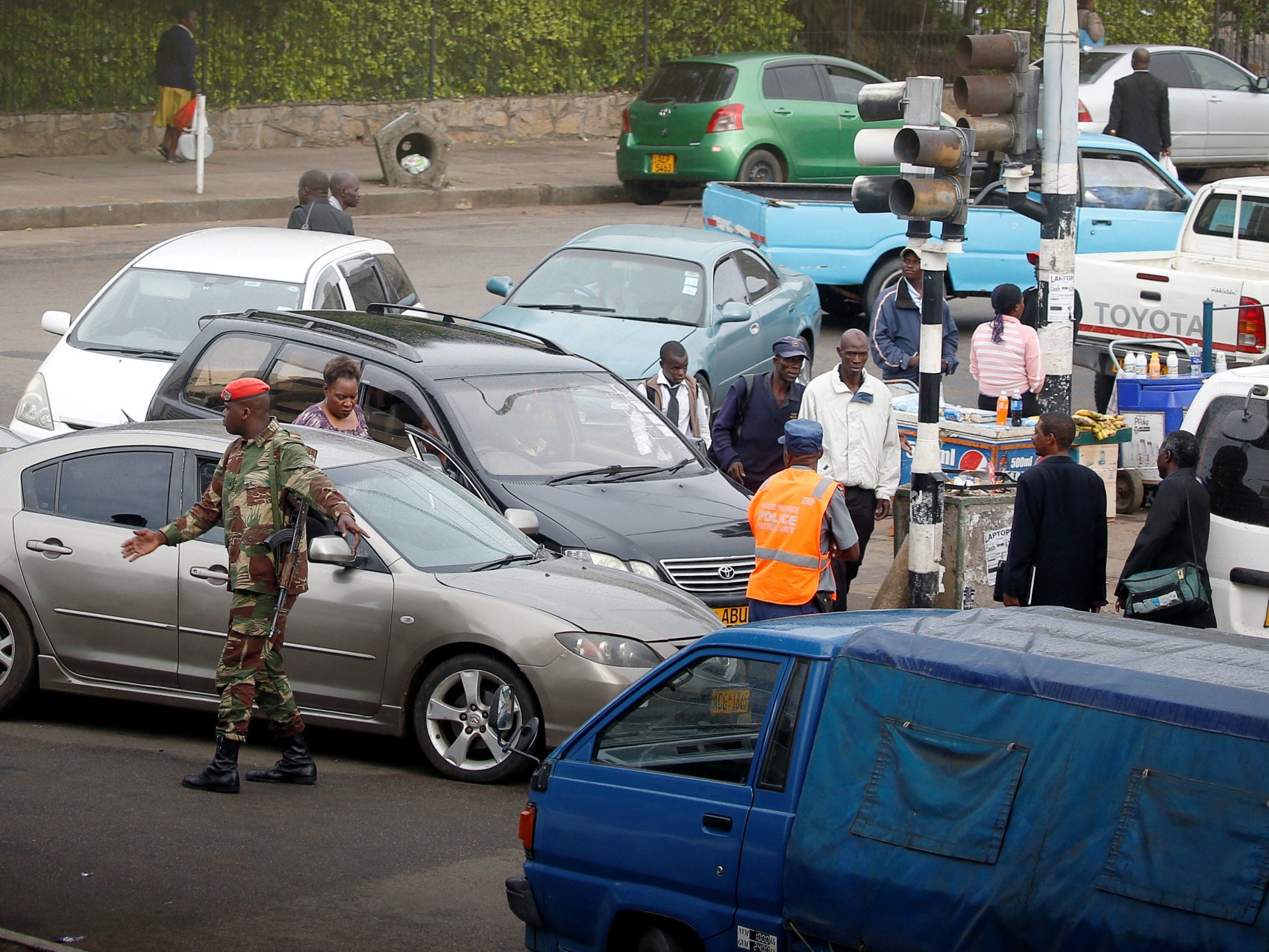I’ve witnessed the aftermath of the unrest in Zimbabwe – the law is failing the country’s citizens
What is striking is the strong continuing commitment by so many in the criminal justice system to the rule of law in spite of clear political interference

Your support helps us to tell the story
From reproductive rights to climate change to Big Tech, The Independent is on the ground when the story is developing. Whether it's investigating the financials of Elon Musk's pro-Trump PAC or producing our latest documentary, 'The A Word', which shines a light on the American women fighting for reproductive rights, we know how important it is to parse out the facts from the messaging.
At such a critical moment in US history, we need reporters on the ground. Your donation allows us to keep sending journalists to speak to both sides of the story.
The Independent is trusted by Americans across the entire political spectrum. And unlike many other quality news outlets, we choose not to lock Americans out of our reporting and analysis with paywalls. We believe quality journalism should be available to everyone, paid for by those who can afford it.
Your support makes all the difference.After widespread unrest between 14-16 January, following a hike in fuel prices across Zimbabwe, over a thousand people have been arrested, a number of those in apparent “dragnet” operations by both police and the army. What happened immediately thereafter appeared to be a wholesale breakdown in proper legal process. Magistrates’ courts separately but almost universally made decisions to deny bail whatever the circumstances – indeed, even where urgent medical attention was required.
Prosecutions were then “fast-tracked”, occasionally without any legal representation. Even where there was representation there was inadequate time and facilities to prepare, let alone present, a proper defence. Although expressly denied, in light of the fact that decisions on bail and subsequent pressure to immediately proceed with trials was so consistent and widespread, it’s hard not to conclude that there was some central pressure and co-ordination. We were told of a trial commencing with a defendant in agony from bullet wounds.
As a British lawyer who was flown out to observe the legal proceedings in operation, I have met numerous lawyers and spoken to many other actors in the criminal justice system as well as concerned diplomats from Britain and other EU missions. I witnessed one trial at Rotten Row Magistrates Court in Harare where 61 defendants were packed into a smallish court.
One juvenile was on trial with all the adults, again an unusual occurrence in Zimbabwe. The sheer number of defendants has necessitated lawyers taking on a large number of clients with little realistic chance of obtaining individual instruction before – or indeed during – the trial.
Additionally, the evidence against individual defendants is in many cases wholly unclear. Whilst I witnessed individual lawyers doing their best within the constraints to properly defend their clients, and magistrates were conspicuously allowing rigorous cross-examination, the proceedings as a whole fell far short of meeting minimum fair-trial standards. Allowing the defence team to do their best with what little has been disclosed cannot realistically ameliorate such systemic failures at the initial stages of the proceedings.
Lawyers demonstrated in Harare last Tuesday, 29 January and petitioned the Constitutional Court, demanding restoration of justice and an end to apparent political and military interference in the criminal justice system. The size of the demonstration (despite fears of arrest) illustrated the scale of concern about the system’s response to the unrest. We heard from many sources that this direct action (lawyers retain a position of respect in Zimbabwe) had some impact and was supported, albeit secretly, by many prosecutors and judges.
What strikes you in Zimbabwe is the strong continuing commitment by so many in the criminal justice system to the rule of law in spite of political interference. The constitution, passed during a time of power sharing in 2013, is a strong and effective document when implemented. The criminal justice system is adversarial and mirrors our own.
There is some confidence that since the high court contains many independent appointees, they may well eventually overturn those convictions obtained after manifestly unfair expedited trials. I lectured some years ago in Harare and Bulawayo on the various human rights instruments applying to Zimbabwe. I was impressed then by the enthusiastic commitment of so many human rights defenders to learn how to challenge violations and hold their government to its own stated obligations. That spirit continues.
I read welcome comments as I landed on Monday by chief justice Luke Malaba supporting the role of lawyers, including from Zimbabwe Lawyers for Human Rights, for their work in representing so many accused in these circumstances. This is in stark contrast with some implied and direct criticism of the very same lawyers in state media whilst I was there. The work of these lawyers is crucial. Without their determination and dedication Zimbabwe would be a less optimistic place.
It is essential that initial trials are urgently reviewed by the high court, and the serious and manifest flaws in many continuing trials addressed. The strength of any justice system is evidenced in how successful it is in ensuring due process, irrespective of the challenges being faced.
Michael Ivers QC is an executive officer of the Bar Human Rights Committee of England and Wales and a barrister at Garden Court Chambers
Join our commenting forum
Join thought-provoking conversations, follow other Independent readers and see their replies
Comments